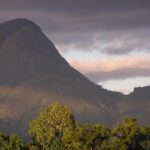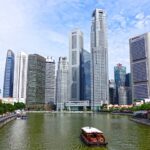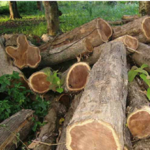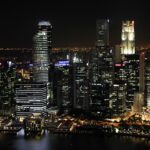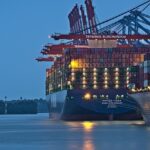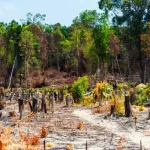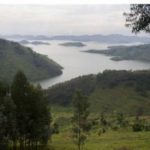
Wood Capitol, a Singapore-based manufacturer of live-edge and solid wood furniture, has formalised its commitment to environmental responsibility by standardising the use of responsibly sourced wood across all product categories. The company has implemented sourcing protocols that prioritise legal harvesting, FSC-certified supply chains, and independent environmental verification.
Wood Capitol’s material of choice, Suar Wood, is sourced from South America through suppliers certified under the Forest Stewardship Council (FSC) chain of custody programme.
The global agarwood trade heavily depends on wild-harvested endangered tree species, despite international regulations for protection, with significant volumes going undocumented in official trade records, a new study reveals.
About 70% of the trade depend on Aquilaria filaria and Aquilaria malaccensis, both threatened species, sourced from the wild, raising major sustainability concerns. Meanwhile, there are some tree species that are not even covered by CITES, the global wildlife trade convention.
Due to discrepancies between CITES and customs data, along with weak enforcement and outdated regulations, researchers suggest the illegal trade is far larger than reported.
Researchers urge stronger monitoring, updated data, expanded species protection, and a shift to cultivated sources. They also call on consumers and wealthy importers to support conservation and governments to promote sustainable practices.
FSC and Assurance Services International (ASI) announce the launch of the Teak Corridor transaction verification (TV) loop. FSC and ASI have conducted TV loops on FSC-certified high-value timber species like teak (Tectona grandis) in the past. The previous teak TV loop, along with other available information, indicate the possibility of integrity risks in the segregation of FSC-certified and non-certified teak in the supply chains.
Therefore, FSC recommends certificate holders with teak in their certification scope to apply additional due diligence in selecting their teak suppliers and following FSC rules to ensure that the teak products they purchase are legitimate and within the FSC certificate scope of the seller.
Singapore has passed a new Bill that gives authorities powers to investigate illicit gains from crimes such as illegal mining, logging as well as waste trafficking . The new laws will address previous limitations in investigating such environmental crimes due to the narrow scope in current legislation. Though those crimes were not committed on Singapore soil, funds from those activities were likely flowing through Singapore. Wildlife trade offences for instance are now serious offences under the Organised Crime Act as of August 30, with enhanced penalties of up to 20 years jail and confiscation of ill-gotten gains.
Singapore had earlier published its first-ever environmental crimes money laundering national risk assessment in May to align with global financial crimes watchdog Financial Action Task Force (FATF)’s standards. In 2022, there were over 49,846 suspicious transaction reports in Singapore, a 9 per cent increase from 2021. Most of the reports were made in the banking sector, with one bank finding questionable supporting trade documents linked to a customer with ties to illegal logging.
Justice for Myanmar (JFM) issued a press release dated 19 August accusing Singapore based company Emerging Towns & Cities (ETC) of continuing to fund the Myanmar military as it commits war crimes and crimes against humanity with total impunity.
ETC’s Myanmar partner, Jewellery Luck Group of Companies, and their owners and directors continue their business relationship with the Quarter Master General Office. Jewellery Luck Group of Companies also owns 30% of Golden Land Real Estate Development. The group also finances the junta through teak purchases from the junta-controlled Myanmar Timber Enterprise, according to Justice for Myanmar sources.
While seeking to wind down its timber operations in Myanmar, the global commodities giant Olam has exported more than a thousand tonnes of teak from the war-torn country since the junta seized power three years ago.
Olam-owned companies have reportedly played a role in exporting nearly 40 shipments of Myanmar teak worth more than US $2 million since the February 2021 military coup, according to leaked tax data and customs records examined by the UK-based journalism organisation Finance Uncovered for Myanmar Now.
These shipments took place after Olam Group’s chief executive publicly confirmed the company would exit Myanmar three months after the coup, as the country descended into a civil war that has seen thousands of civilians killed and millions driven. . .
Legal analysis by Allen & Gledhill on Singapore’s recent bills related to anti-money laundering and foreign environmental crimes.
SINGAPORE has introduced a Bill to give more teeth to law enforcement agencies to prosecute money laundering suspects and to deal with properties linked to suspected criminal activities. Tabled in Parliament on Tuesday (Jul 2), the proposed changes pave the way for certain seized assets to be sold, to reduce the cost of maintaining them.
The Bill also proposes to allow probes to extend to environmental crimes such as illegal mining, and to facilitate the prosecution of money mules who launder funds on behalf of someone.
On Wednesday (Jun 26), Prime Minister and Minister for Finance Lawrence Wong announced Singapore’s national asset recovery strategy, as part of the country’s continued efforts to enhance its anti-money laundering and counter-terrorism financing regime.
Singapore will reinforce laws governing its anti-money laundering regime, to allow for certain seized assets to be sold before court cases conclude, and for probes to extend to environmental crimes such as illegal wildlife trading.
A short summary of Singapore’s environmental crimes money laundering risk assessment by legal firm Allen & Glendhill.
The Monetary Authority of Singapore (MAS) has warned the city-state is vulnerable to criminals laundering the proceeds of environmental crime and is urging local banks to conduct greater scrutiny of trade transactions. Last week, MAS published the findings of a government-wide review into Singapore’s financial sector and its potential exposure to crimes such as wildlife trade, illegal logging and the illicit shipping of hazardous waste.
Later this year, Singapore is preparing to expand the scope of its existing Corruption, Drug Trafficking and Other Serious Crimes (Confiscation of Benefits) Act, which targets environmental crime laundering. The expansion would allow Singapore’s authorities to investigate offences that first take place overseas but have “no domestic equivalent”, such as illegal logging or waste trafficking.
Singapore’s casino industry has been named as one of four sectors deemed at medium-high risk of being exploited for environmental crime money laundering, although no specific cases have been identified, according to a new report issued by multiple Singapore agencies.
The “Environmental Crimes Money Laundering National Risk Assessment” was jointly published by the Ministry of Home Affairs, the Monetary Authority of Singapore and the Ministry of Finance on Wednesday, providing a detailed overview of the nation’s environmental crime money laundering risk environment and identifying key threats, vulnerabilities, controls and areas of enhancements.
The report, which claims environmental crimes generate between US$110 billion and US$281 billion in criminal gains globally every year, highlights Singapore’s status as an international financial centre, and an international trading and transport hub with a highly-externally-oriented economy, as the reason it is utilized by criminal groups as a transit country for environmental crimes, such as those associated with illegal wildlife trafficking or illegal logging and waste trafficking.
Today, Singapore published an Environmental Crimes Money Laundering (ML) National Risk Assessment (NRA) which identifies the key threats and vulnerabilities in environmental crimes ML that Singapore is exposed to, and outlines mitigation measures which government agencies, financial institutions (“FIs”) and Designated Non-Financial Businesses and Professionals (“DNFBPs”) can develop to address the risks. Env Crimes ML NRA – Final for Publication.pdf (mas.gov.sg)
UNODC’s 2024 World Wildlife Crime Report has a case study on the illegal trade in rosewood, with a focus on Nigeria. Major players in the case study include China, India, Singapore, Mali, Guinea-Bissau, Brazil, Vietnam and Ghana.
According to Global Canopy, US$6.1 trillion in funding was provided to the 350 companies with the greatest risk exposures to tropical deforestation by some 150 financial institutions in 2023.
Through this exposure, land conversion presents numerous supply-chain risks to firms, namely:
- The reputational risks posed by adverse media (exacerbated further if linked to any human-rights abuses in the context of land conversion).
- The legal risks represented by increasing regulatory and legislative pressures on companies and financial institutions to prevent deforestation.
- The physical risks present, given that most bank-financed businesses and commercial services ultimately depend on natural capital and resources directly or through their supply chains. Aggressive consumption of resources reduces their availability in the long term, undermining sustainable development and creating economic instability. Indeed, the World Economic Forum (WEF) has estimated that at least 50 percent of global GDP is reliant on nature and warned that the impacts of climate change would significantly destabilise global trade.
Wilmar International’s No Deforestation, No Peat, No Exploitation policy, announced ten years ago, marked a significant milestone in environmental conservation by prohibiting deforestation, peatland destruction, land-grabbing, and labor abuses in their global supply chain, impacting thousands of palm oil companies.
The policy, a result of global campaigning and intense negotiations, contributed to a dramatic reduction in deforestation for palm oil by over 90%, influencing other industries and contributing to the lowest deforestation levels in Indonesia, as well as progress in Malaysia, Papua New Guinea, and tropical Africa, argues Glenn Hurowitz, the Founder and CEO of Mighty Earth, who led the negotiation with Wilmar.
Hurowitz says this “success story” highlights the importance of private sector involvement, effective campaigning, diligent implementation, the necessity of continuous effort, and the insufficiency of data alone in driving change.
But an investigation by nonprofit newsroom The Gecko Project reveals how First Resources’ majority shareholders, the billionaire Fangiono family, have breached their company’s pledge of “sustainable” production by secretly controlling companies that environmental analysts found had cleared large areas of rainforest in Indonesia.
The investigation in collaboration with the International Consortium of Investigative Journalists also spotlights a loophole in the Singapore Exchange’s reporting rules that allows listed companies to publish so-called sustainability reports, without requiring that an independent firm audits the company’s green claims.
The report by the Financial Accountability and Corporate Transparency (FACT) Coalition, published on Oct. 26, said that “critical gaps” in the U.S. anti-money laundering system are vulnerable to exploitation by criminal groups, including those behind the destruction of the Amazon, the world’s largest tropical rainforest.
FACT’s analysis focuses on forestry crimes and illegal mining in Peru and Colombia. The report also summarizes how U.S. importers sidestep the law by not trading directly with the blacklisted Myanmar Timber Enterprise (MTE) but instead with non-sanctioned Myanmar exporters and middlemen based in Singapore, Thailand and other third countries.
The Zoological Society of London (ZSL), which, in its 2025 SPOTT assessment of 100 major forestry firms, reports that only 18% disclose the countries from which they source, and a mere 4% can trace their supply chains down to the forest management unit (FMU) level. At the same time, Wood Central understands that none of the companies assessed publish georeferenced maps for all third-party FMUs, and just 3% report what share of their supply is verified deforestation-free.
SPOTT assesses 100 timber and pulp producers, processors and traders on their public disclosure regarding their organisation, policies and practices related to environmental, social and governance (ESG) issues. Each company receives a percentage score to benchmark their progress over time. See further explanation of assessment scores here.
Click here to access the Global Illegal Logging and Associated Trade (ILAT) Risk assessment tool and to download the Forest Trends User Guide describing the functionality of the ILAT Risk Data Tool.
Click here to access the Cattle Data Tool.

